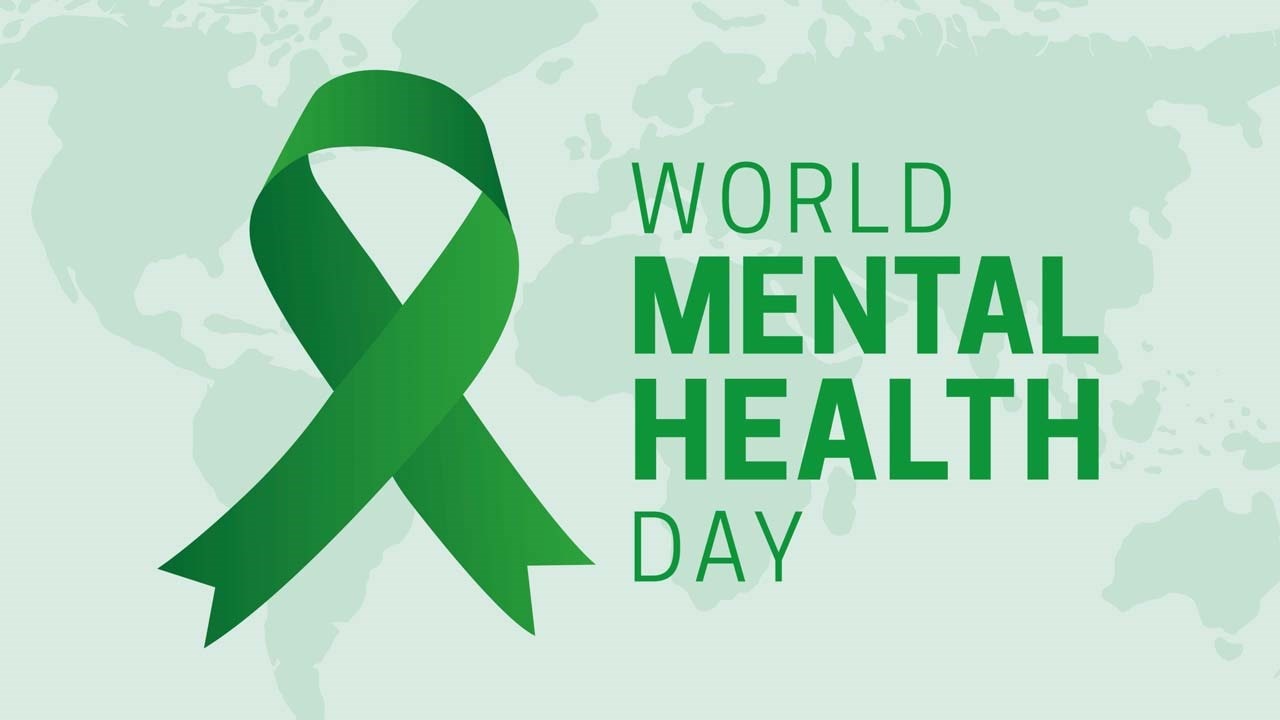World Mental Health Day 2021 - Mental Health in an Unequal World
The World Health Organisation (WHO) theme for World Mental Health Day 2021 is 'Mental health care for all'.
The organisation stated that this year's theme was chosen because in their view the world is becoming increasingly polarised, with the wealthy becoming wealthier and an increase of people living in poverty. The 2020 campaign highlighted inequalities, such as gender identity, ethnicity and sexual orientation and the lack of human rights in many countries. These inequalities influence a person's mental health.
This year's theme aims to highlight unequal access to mental health services. The World Federation for Mental Health (WFMH) estimated that between 75% to 95% of people who have a mental health problem cannot access mental health services whether they come from low-to-middle or high-income country. Moreover, it shows across the board that a lack of investment in mental health is disproportionate to the overall health budget, contributing to the mental health treatment gap.
Discrimination and stigma associated with mental illness can deteriorate a person's physical health and affect their education opportunities, which will, in turn, have a knock-on effect on current and future earnings.

In society, there are many misconceptions about mental health; below are a few of the common examples:
- Mental health problems are rare (in reality 1 in 4 people will be affected in our lifetime).
- Asking for help is a sign of weakness.
- There is no help to support someone in a mental health crisis.
- Poor mental health cannot be prevented.
- There is no discrimination against people with mental health conditions.
- Mental health problems are always inherited.
- Someone with a diagnosed mental health condition is unable to work.
- Medication is the only way to manage a mental health condition.
These misconceptions need to be addressed to improve mental health care and create supportive working environments.
The Covid-19 pandemic further highlighted these inequalities. In general, it has had a significant impact on mental health, especially for frontline workers, those living alone and, in particular, seafarers.
Whilst work is returning to normal for many sectors, this is not the case for the shipping sector, with nearly 200,000 seafarers still stranded at sea due to a non-harmonisation of policies between countries. The psychological impact of this is considerable and affect the seafarers' mental health, their families and associated communities.
Shipping is a vital function for the supply goods chain in the global economy. The pandemic has magnified this position and increased pressure on the sector because of increasing societal expectations around the prompt delivery of goods, but this has come at the price of deprioritising of seafarers' wellbeing and health.
A United Kingdom research study conducted found that people in the shipping industry are five times more likely to have an accident (with 75% of the incidents recorded resulting from human error) than those working within construction. Furthermore, when compared to shore workers, the safety performance was 20 times worse. By improving seafarers' wellbeing, shipping companies will decrease incidents, thus reducing costs, time and resources.
Inmarsat conducted an industry-wide survey in 2020 on seafarers' wellbeing; the survey showed that 54% of seafarers felt they were not actively helped to managing their stress and fatigue levels. This survey was done at the pandemic’s peak when the crew-change crisis severely impacted both the seafarers and their families. However, this issue was already a concern pre-pandemic, with the main problems of fatigue, stress and isolation cropping up frequently in reports.
A 2019 survey conducted by the Institution of Occupational Safety and Health found that 55% of employers who responded stated that they had not introduced any procedures or policies to address the mental health issues for seafarers in the last ten years.
Many mental health charities say that getting senior leaders/management onboard is vital in progressing mental health plans and for employees to take their cues from their leaders. In addition, management ashore can help promote mental health by implementing the following:
- Speak about mental health and promote its importance in the workplace.
- Participate in programmes that can help care for crews’ mental health and wellbeing.
- Listen and respond to employees’ concerns and feedback.
- Develop an action plan to improve mental health on board.
- Within the employee’s induction to the organisation, include a session on mental health and introduce the policy and procedures which are in place.
- Promote the support available within the organisation, including its policy and procedures.
- Provide all employees with mental health awareness training.
- Recruit personnel ashore who can handle mental health cases onboard the vessel and ensure adherence to policies and procedures.
- Run internal awareness campaigns, e.g. mental health day.
- Share and signpost reliable mental health information, e.g. articles, stories, booklets etc.
Members requiring further guidance or assistance should contact the Loss Prevention Department.
Sailors’ Society - Wellness at Sea campaign video
As part of our charity support programme West has supported the Sailors’ Society Wellness at Sea programme. The Society has recently launched a video highlighting issues faced by seafarers and how the charity can help.
View here